The European Semester Enters the Enlargement Process
Adelina Marini, October 18, 2013
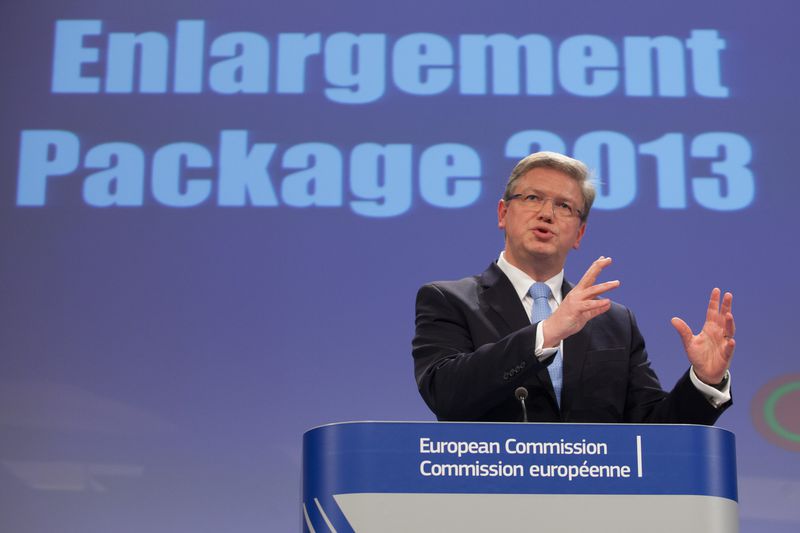 On July 1st this year the EU accepted its 28th member which is possible to had been to a large extent politically prepared for membership, but its economic situation is quite acute and brings another risk into the already exhausted from the crisis European Union. That is why, the Commission is changing its enlargement strategy to include economy in its main priorities for the accession countries. The issue is essential because a large part of the economic troubles in the EU and the eurozone in particular are a symptom of the lack of structural reforms. External influences prove to be with relatively less weight. Accepting more economically, but also politically weak countries in EU will only further weaken the Union and in that sense the decision of EU Enlargement Commissioner Stefan Fule is worth a praise.
On July 1st this year the EU accepted its 28th member which is possible to had been to a large extent politically prepared for membership, but its economic situation is quite acute and brings another risk into the already exhausted from the crisis European Union. That is why, the Commission is changing its enlargement strategy to include economy in its main priorities for the accession countries. The issue is essential because a large part of the economic troubles in the EU and the eurozone in particular are a symptom of the lack of structural reforms. External influences prove to be with relatively less weight. Accepting more economically, but also politically weak countries in EU will only further weaken the Union and in that sense the decision of EU Enlargement Commissioner Stefan Fule is worth a praise.
The terror of bringing in more economic troubles was quite evident during the presentation of the enlargement countries' progress reports in the foreign affairs committee in the European Parliament. During the presentation, Takis Hadjigeorgiou, MEP from the Confederal Group of European United Left (Cyprus), said that the economy was in the foundation of prosperity of the candidate countries and, therefore, their economic development should be followed closely, because "25 million people will join Europe, but will they not be under the poverty threshold?" Commissioner Fule underscored during the presentation of the enlargement strategy 2013-2014 that in the past three years the EU has radically changed and has enhanced its economic governance through the European semester. For this reason, it is essential the candidates to pass through something he called a "touch of the European Semester", so they can adapt their governance to the changing European model.
In the strategy five key challenges are outlined the countries from the Western Balkans and Turkey are facing, the first of which is economic governance and competitiveness. Then follow rule of law; functioning of the institutions that guarantee democracy; fundamental rights; and in the case of the Western Balkans, overcoming the legacy of the past. And if Turkey is one of the leading global economies, with a constantly growing gross domestic product and prosperity and is also a recognised market economy, this is not true for the Western Balkan countries of which none is a recognised market economy. That is why the Commission introduces as of next year a new approach, which will help the candidates and potential candidates to tackle the economic fundamentals to be able to fulfil the economic criteria.
Practically, with them will be applied an exercise very similar to the European Semester in which all the EU member states participate. In close coordination they will develop national economic reforms strategies which have to consist of two elements: a macroeconomic and fiscal programme and a structural reforms and competitiveness programme. In order to ensure these programmes will not remain on paper only, joint meetings will be held with the candidate countries in the framework of the Ecofin (the council of the economic and finance ministers), during which the candidates will get more targeted instructions and country specific recommendations. Annual reviews of implementation will also be made. The implementation of all the recommendations and guidelines will be monitored by the Commission and will be included in the annual progress reports.
Rule of law: the Achilles' heel of the candidate countries
The economy, however, cannot develop reliably unless there is rule of law. And that is the weakest spot in the joint work of the Commission with the candidate countries. The crisis in the enlargement process unfolded with the big bang enlargement in 2004 when the Union bubbled up by 10 new members, eight of which former communist countries. In 2007 another two former communist countries joined, the poorest ones. They entered with a "crutch" because of their incapability to tackle precisely the EU fundamentals. The deeds that followed of Bulgaria and Romania already as full fledged member states and also the negotiations with Croatia showed clearly that the problem with the rule of law should not be underestimated. And if two years ago the Commission simply presented the progress reports and the enlargement strategy, as of last year Stefan Fule introduced special headlines thus, obviously, trying to underscore which the most problematic areas are.
In this year's strategy they are outlined more than clearly. Let us recall them: economic governance, fundamental rights, rule of law, legacy from the past; functioning of the institutions that guarantee democracy. According to the Commission, the rule of law is at the heart of the enlargement process. In 2012, for the first time the EU's new approach was applied to start the accession negotiations from the most complex chapters - 23 and 24. It is important to note that these two chapters are also part of the evolution of the enlargement process. Chapter 23 is a new one that covers the 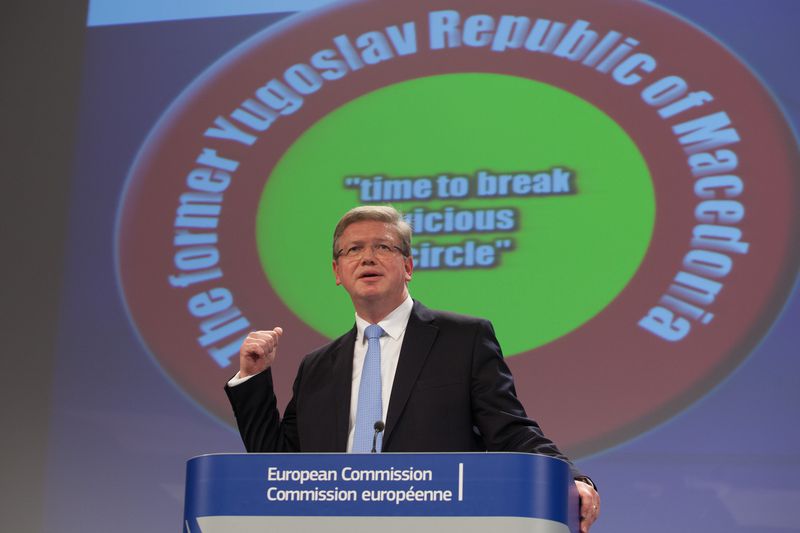 fundamental rights and citizenship. Currently, Montenegro is negotiating under this new approach, but it is still too early to tell whether it delivers.
fundamental rights and citizenship. Currently, Montenegro is negotiating under this new approach, but it is still too early to tell whether it delivers.
In most countries from the enlargement process there is a need for "inclusive, transparent and ambitious judicial reforms with the aim of ensuring independent, impartial, efficient and accountable judicial systems. Particular attention is needed to the appointment, evaluation and disciplinary procedures for judges", the strategy says. We can safely suggest that this conclusion is copied from the reports under the Cooperation and Verification Report (CVM) which Bulgaria and Romania joined and continue to dwell in the EU with. It is explicitly stated that the candidate countries, but also the potential candidates, have to invest more efforts in ensuring a solid track record, including effective and unbiased investigations, prosecution and sentences at all levels, including high level corruption. This is the hardest test for the countries that lived for a long time in a process of institutional destruction and did not succeed in building strong mechanisms of purge.
Democracy is not only elections
The answer to this problem is contained in another rough conclusion of the Commission in the enlargement strategy: "Democratic institutions remain fragile in a number of enlargement countries. A culture of consensus building is lacking, with the role of national parliaments underdeveloped. Democracy is about more than the conduct of free and fair elections. It is about strong, accountable institutions and participatory processes, centred around national parliaments. Parliamentary scrutiny is often undermined by excessive use of urgent procedures for legislation, weak parliamentary committee systems and procedures and insufficient stakeholder consultation, with minimal input from experts".
And in order that you do not get confused that we are talking about Bulgaria, which is a member of the EU for 6 years, let me remind you that this is about the countries from the enlargement process. This is important because the findings of the Commission describe very well the Bulgarian situation, including in that area: "Elections are all too often seen as an opportunity to gain political control of state institutions
well beyond the normal legitimate hand-over of political power associated with a change of
administration. In many cases, even relatively junior positions in the public administration are
effectively politicised. This undermines both the capacity and accountability of administrations. Public administration reform is vital, including professionalisation and depoliticisation of the civil service. Embedding meritocratic principles, tackling corruption and ensuring adequate administrative procedures, including with respect to human resources, are of fundamental importance", the Commission strategy says.
That is why the administrative reform will be a key priority in the accession process with a focus on transparency, depoliticisation and meritocratic recruitment process.
Building a culture of respect for those who are different
In the Western Balkan countries and Turkey prevails the culture of intolerance. The Commission's conclusion is that in many of the enlargement countries the freedom of expression is seriously in danger, as well as the fundamental rights of minorities (of any kind). Brussels believes that it is important to consolidate the framework for fighting specific forms and manifestation of racism and xenophobia in areas like audiovisual media, sports, politics, education and Internet. Discrimination based on sexual 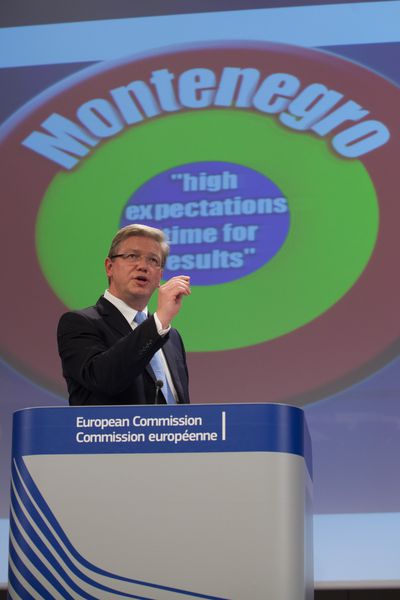 orientation is also widespread, is the Commission's finding, which is visible in the attitudes in these countries (but also in some of the member states) to the LGBT Pride processions.
orientation is also widespread, is the Commission's finding, which is visible in the attitudes in these countries (but also in some of the member states) to the LGBT Pride processions.
The Serb political weekly Vreme wrote a few weeks ago that the "Pride of Respect" is "in fact the first big test for Serbia's European orientation". According to the magazine, the big problem with the Pride in Serbia is that the political elite do not stand behind it. Vreme quotes Ivica Dacic, the Serb premier, who said in September that as it is a constitutional right to express a divergence, it is also his constitutional right not to attend the Pride. The powerful first deputy Prime Minister Alexander Vucic also formally announced he would not attend the Pride. The weekly makes a comparison with neighbouring Croatia. It is pointed out that most problematic of all Prides is the one that takes place in Split, which is why this year's was attended by five cabinet ministers, among whom the first deputy Prime Minster Vesna Pusic, Minister of Administration Arsen Bauk and even Interior Minister Ranko Ostojic.
The picture the Commission is drawing in its enlargement strategy is also quite desperate. "Homophobia, discrimination and hate crimes on the basis of sexual orientation and gender identity are still widespread phenomena in the Western Balkans and Turkey. This is partly due to incomplete legislative frameworks, but also to the inconsistent implementation of the legal provisions in place". The most serious problems are in Turkey and Macedonia. The Commission calls for zero tolerance to hate speech, violence and threats. Brussels will assist these processes except through the regular progress reports, but also by organising a LGBT conference in 2014 and by improving its cooperation with international organisations and the civil society.
Nothing of the above can be achieved without free media
The place of media in this entire process of transformation of the countries from the enlargement process is definitely not the last. This should be a priority number one of the candidate countries and the Commission. According to Brussels, the political interference in the work of media continues to be of serious concern. It is necessary to stop the informal economic pressure on media, including by transparency of media ownership, preventing the excessive concentration and by creating transparent rules for procurement of government advertising. To achieve that the Commission will hold regular dialogues with the enlargement countries on the need for freedom of expression and media and will include the topic in the negotiations on Chapter 23. Separately, a prize for investigative journalism will be established in 2014.
How about a non-permanent EU membership?
That said, however, leads to the unpleasant conclusion that, in fact, not a few from the new EU member states experience the same problems as the candidate countries. Some of the texts describe in a frightening way to the letter the situation in Bulgaria. How will the Commission handle these issues in the EU member states is as important as is for the candidates, because there is nothing more demotivating than a candidate to watch that the EU accepted countries that had not resolved these so difficult problems and that no one demands them to do that. So, it is worth praising the Commission for finally having felt the challenges for the enlargement process, but it is important to admit that these are not challenges for the enlargement only. Those are problems for the very survival of the EU and its fundamental values.
During the presentation of the progress reports on October 16th, Commissioner Fule underscored that it should not be considered that the benefits of accession come at the last stage. This means that if the candidate countries conduct genuine reforms, not just on paper, the citizens in those countries can feel the benefits of the EU long before actual membership. The big question, though, is how can this happen? Not a few MEPs asked the EU commissioner on Wednesday why the findings in the progress reports are actually the same years in a row. So, isn't it time to introduce non-permanent membership in the EU, similar to the non-permanent members of the UN Security Council? Only it will not be on a rotating basis.
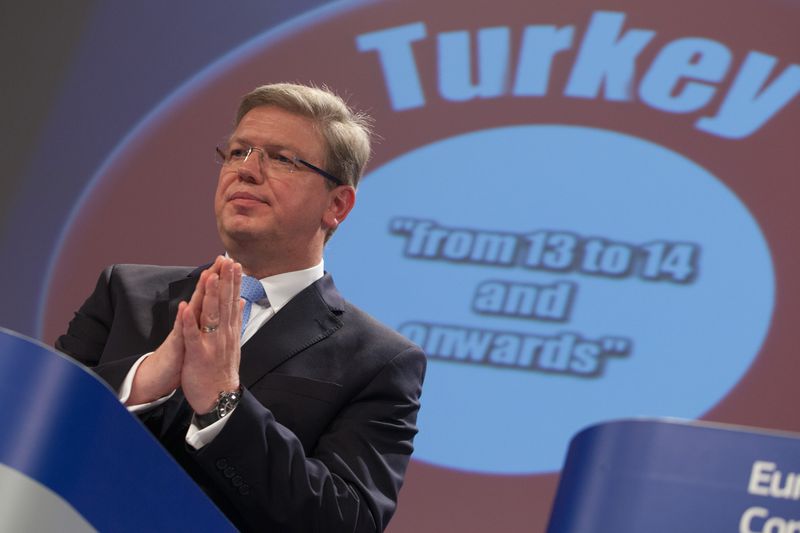 When it is agreed that a candidate has closed all the chapters and has put all the necessary legislation in place, guaranteeing all the fundamental values of the EU, it joins. Very often, however, after the membership a process begins of restoration. A very telling example in this regard is Croatia, which two days before accession changed a key text in its legislation related to the European Arrest Warrant. The country did that at a time when the process of ratification had already ended, which was a very strong instrument for influence that left the Commission unable to react in any way in such a short notice. Moreover, it was already Saturday. In Bulgaria, too, often are made the necessary legal changes to make sure the Commission will come up with a "good" report under the CVM, which are then reversed to mitigate the severe conditions of democracy, accountability and transparency.
When it is agreed that a candidate has closed all the chapters and has put all the necessary legislation in place, guaranteeing all the fundamental values of the EU, it joins. Very often, however, after the membership a process begins of restoration. A very telling example in this regard is Croatia, which two days before accession changed a key text in its legislation related to the European Arrest Warrant. The country did that at a time when the process of ratification had already ended, which was a very strong instrument for influence that left the Commission unable to react in any way in such a short notice. Moreover, it was already Saturday. In Bulgaria, too, often are made the necessary legal changes to make sure the Commission will come up with a "good" report under the CVM, which are then reversed to mitigate the severe conditions of democracy, accountability and transparency.
If a non-permanent membership is to be introduced countries will be in a constant stress that they can lose their powers and rights in the EU if they allowed restoration of bad practises. This will help a lot the citizens, too, who will be more vigilant who they elect to govern them. Parties and leaders who lead a country to the EU exit can easily be thrown out in the dust bin of history if non-permanent membership is introduced for countries where dictatorship, military conflicts and organised crime ruled. This could bring new impetus to the enlargement process which, in spite of some sporadic successes, is rather a reason for growing euroscepticism than a triumph of European integration.
 Bakir Izetbegovic, Andrej Plenkovic | © Council of the EU
Bakir Izetbegovic, Andrej Plenkovic | © Council of the EU Aleksandar Vucic, Recep Tayyip Erdogan | © Serbian Presidency
Aleksandar Vucic, Recep Tayyip Erdogan | © Serbian Presidency Jean-Claude Juncker, Zoran Zaev | © European Commission
Jean-Claude Juncker, Zoran Zaev | © European Commission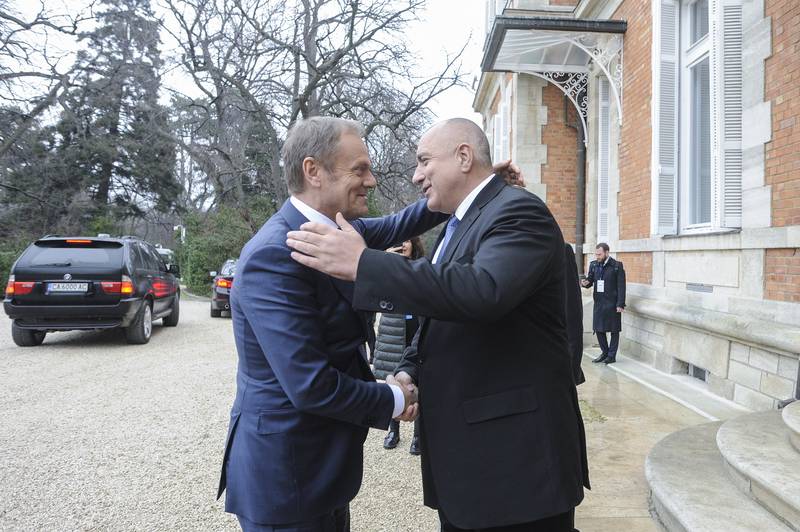 Donald Tusk, Boyko Borissov | © Council of the EU
Donald Tusk, Boyko Borissov | © Council of the EU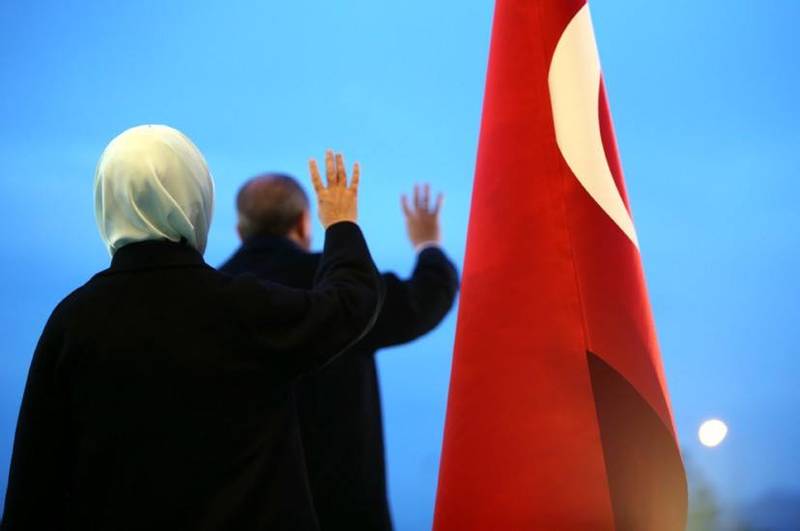 | © Turkey Presidency
| © Turkey Presidency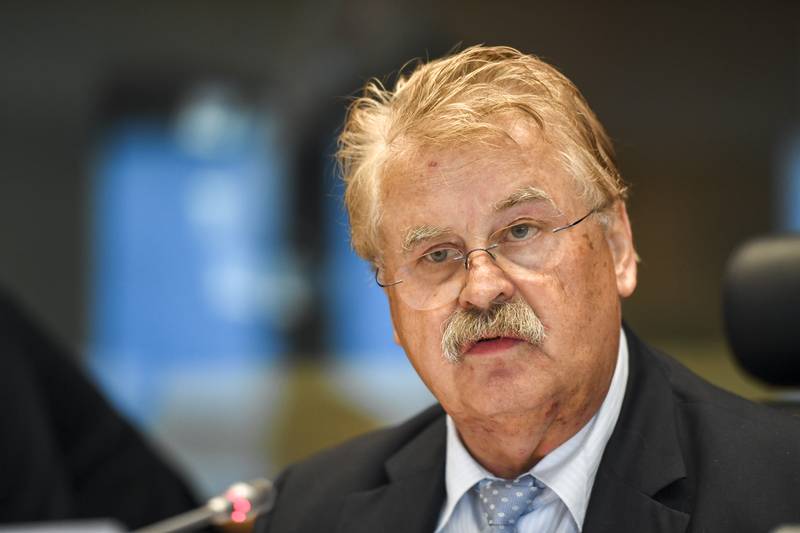 Elmar Brok | © European Parliament
Elmar Brok | © European Parliament